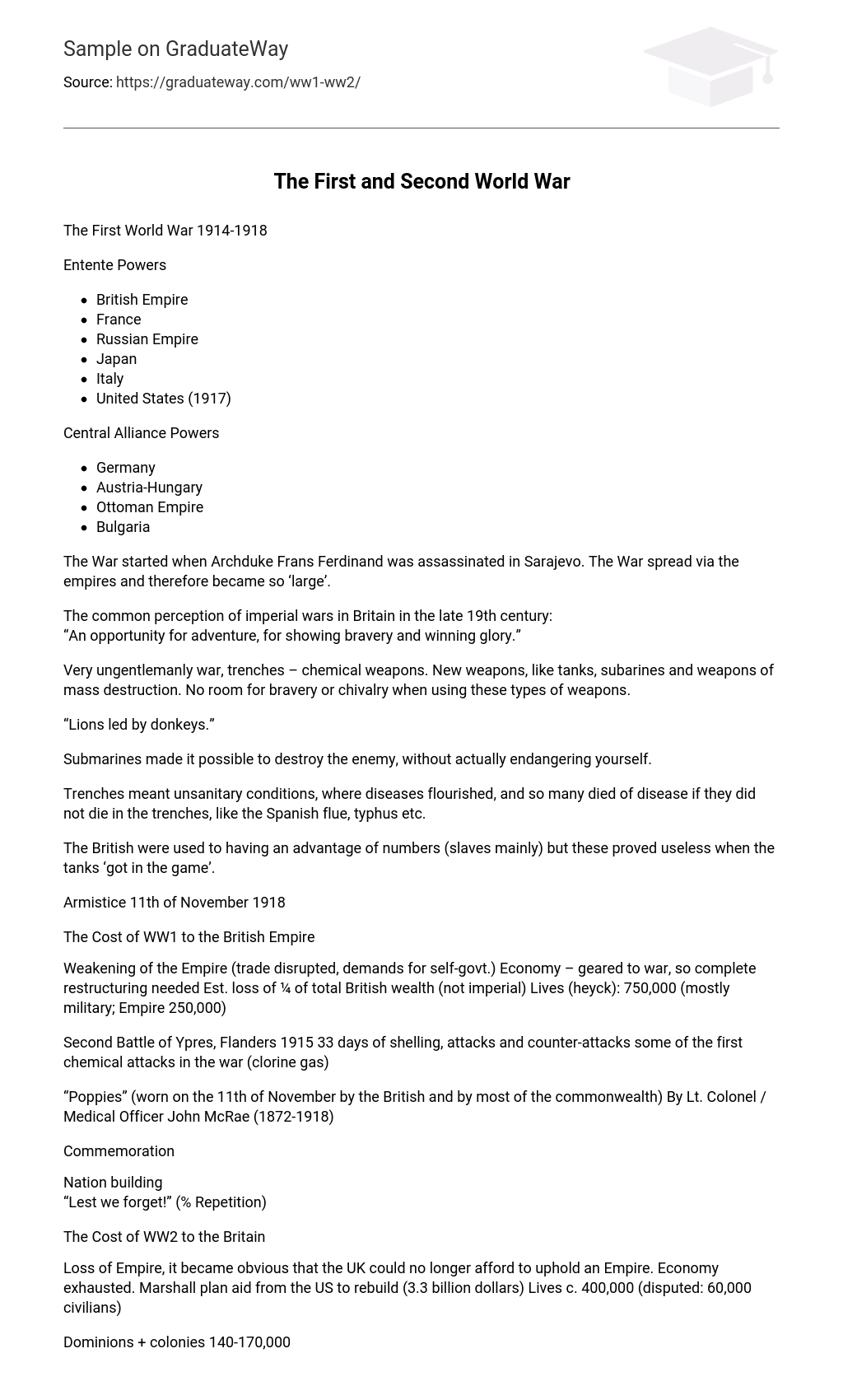The First World War 1914-1918
Entente Powers
- British Empire
- France
- Russian Empire
- Japan
- Italy
- United States (1917)
Central Alliance Powers
- Germany
- Austria-Hungary
- Ottoman Empire
- Bulgaria
The War started when Archduke Frans Ferdinand was assassinated in Sarajevo. The War spread via the empires and therefore became so ‘large’.
The common perception of imperial wars in Britain in the late 19th century:
“An opportunity for adventure, for showing bravery and winning glory.”
Very ungentlemanly war, trenches – chemical weapons. New weapons, like tanks, subarines and weapons of mass destruction. No room for bravery or chivalry when using these types of weapons.
“Lions led by donkeys.”
Submarines made it possible to destroy the enemy, without actually endangering yourself.
Trenches meant unsanitary conditions, where diseases flourished, and so many died of disease if they did not die in the trenches, like the Spanish flue, typhus etc.
The British were used to having an advantage of numbers (slaves mainly) but these proved useless when the tanks ‘got in the game’.
Armistice 11th of November 1918
The Cost of WW1 to the British Empire
Weakening of the Empire (trade disrupted, demands for self-govt.) Economy – geared to war, so complete restructuring needed Est. loss of ¼ of total British wealth (not imperial) Lives (heyck): 750,000 (mostly military; Empire 250,000)
Second Battle of Ypres, Flanders 1915 33 days of shelling, attacks and counter-attacks some of the first chemical attacks in the war (clorine gas)
“Poppies” (worn on the 11th of November by the British and by most of the commonwealth) By Lt. Colonel / Medical Officer John McRae (1872-1918)
Commemoration
Nation building
“Lest we forget!” (% Repetition)
The Cost of WW2 to the Britain
Loss of Empire, it became obvious that the UK could no longer afford to uphold an Empire. Economy exhausted. Marshall plan aid from the US to rebuild (3.3 billion dollars) Lives c. 400,000 (disputed: 60,000 civilians)
Dominions + colonies 140-170,000





